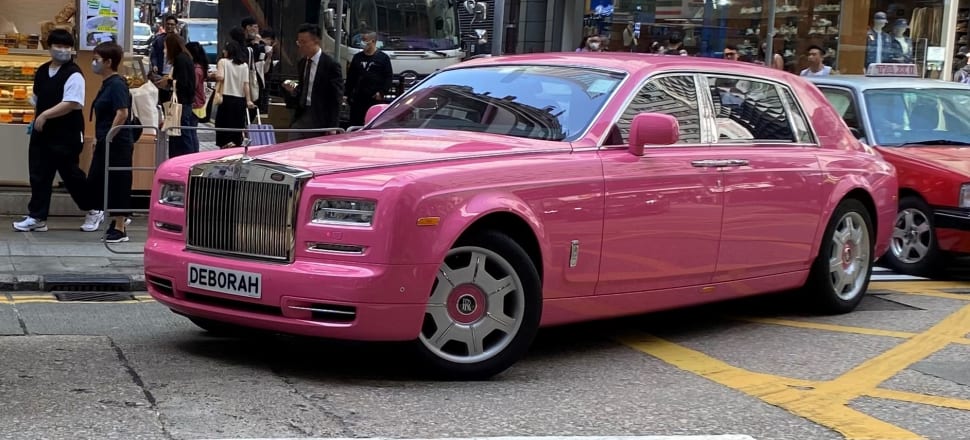
A special report on the Hong Kong international writers festival
To cover the week-long 22nd Hong Kong International Writers Festival in March was to blunder about in thick jungle at night looking for poisonous snakes, to sit with expats on little stools in an obscure back-street dim sum restaurant and eat a range of authentic local dishes chosen by one of the best new chefs in Asia, to catch glimpses of the dreamy, playful, meticulously formed nature of Hong Kong literature, and, sometimes, to wonder about certain underlying tensions. What a strange, poignant time to stage a literary festival, the first in Hong Kong for three years - when it took place in early March, it was only a week after the mandate on wearing masks was finally lifted. Quite a few people kept them on, particularly in the crowded matrix of escalators and subways in the MTR underground. But there was another kind of caution during the festival and it had no relation to Covid, to anything as straightforward as a plague.
The first entirely live on stage international literary festival since Covid was also the first entirely live on stage international literary festival since China's 2020 imposition of national security laws. Their impact on Hong Kong - the arrests, the jailings, the message it sends that democratic freedoms are extinct - was never explicitly addressed at the festival. That would have been extremely unwise.
The thing about underlying tensions is that they're underlying. On the busy streets of Hong Kong, and on the beautiful little outlying islands with sandy beaches and no cars, seven million residents went about their lives. Ferrymen hooked the Kowloon ferry to the wharves with hooks, like catching a slow, stately fish; the dogs of the rich dragged maids up and down the sidewalks of the Mid Levels; on sandy, car-less Lamma Island, the only hint of totalitarianism was directed at the Frisbee, in a sign on the beach that read PLEASE NO THROWING OF THE FLYING DISC. Travel writer Pico Iyer appeared at the festival and provided a lesson in observation. He was born in England to Indian parents and lives mainly in Japan, sometimes California. He described an assignment to North Korea. Of course he was aware of the politics, he said, but he was immediately touched by the sight of a man walking down a road and heading home for dinner with his family. Most of us, remarked Iyer, a charming and insightful writer who has the rare gift of optimism, navigate our lives around any given political shape.
And so the Hong Kong shocked to its core by the security laws was also the everyday Hong Kong of church services, gambling, foot massages, the mall, the ferry, the subway, heading home for a family dinner. They had gone crazy for coffee, craft beer, house plants. They had gone really crazy for fresh details about the totally crazed killing of a model and social influencer - Abby Choi, 28, was dismembered, and police found her skull and ribs in pots of stew. The wealthy were driving Teslas, particularly the latest Y range, and shopping at Louis Vuitton and Chanel at Landmark Mall (and eating at its three-star Michelin restaurant L'atelier de Joël Robuchon) - according to a South China Morning Post report on the super-rich, Hong Kong has topped other Asia cities where multimillionaires maintain primary residencies, measured as 15,175 individuals with a worth of at least US$30million. Down at the other end of wealth, the paper devoted a lot of coverage to the police seizure of a 90-year-old street hawker's roasted chestnut cart. Politics was elsewhere.
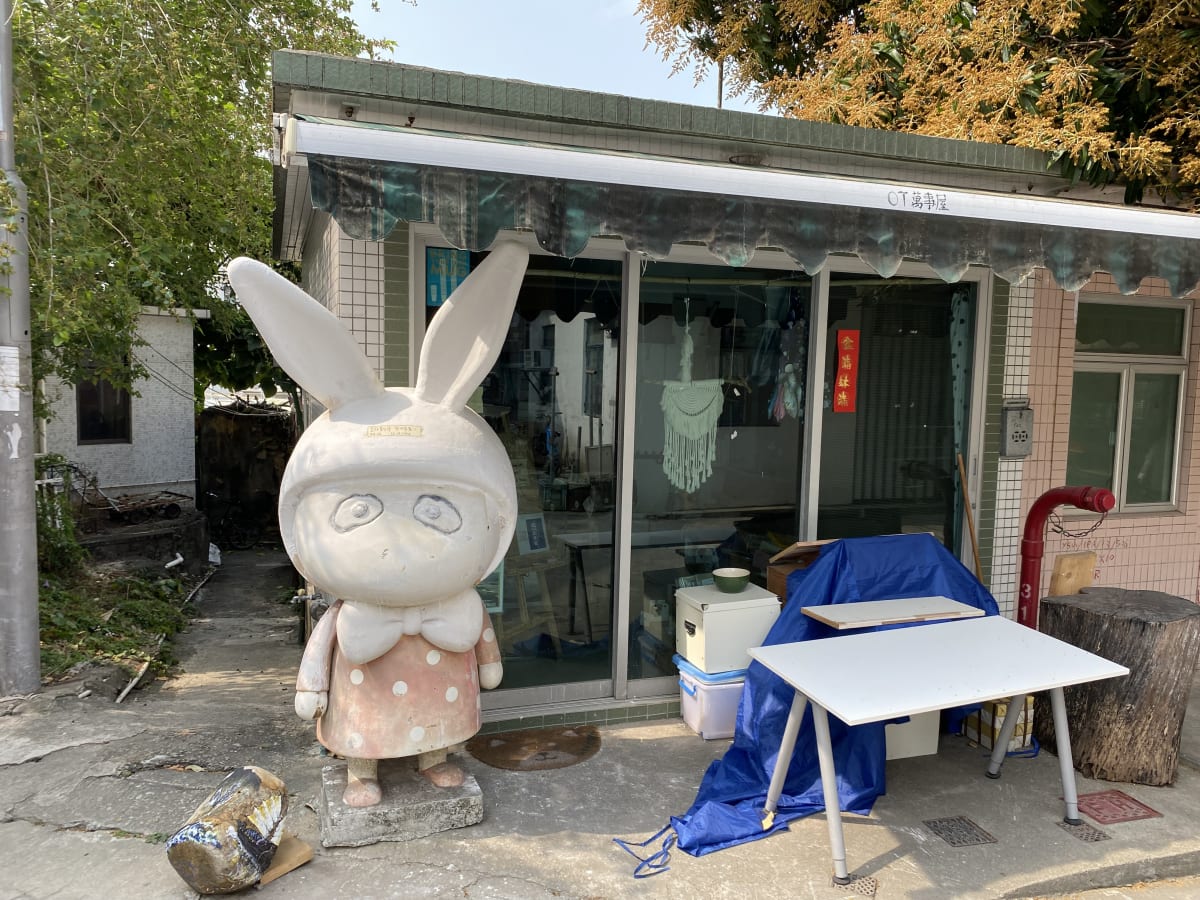
Hong Kong literature, too, had other things on its mind. As Asian Review of Books editor Peter Gordon writes, "Hong Kong writers have much to say—and not just about democracy." Its international writers festival in March had much to offer, only sometimes (cagily, quietly) about democracy.
I got a suite in the top floor of a hotel in the Mid Levels, so-called because it's way, way above the sealevel of Victoria Harbour and half-wayish towards The Peak, Hong Kong's elevated Sky Tower. I could see across the harbour to Kowloon. I could not always see that far. My first day in Hong Kong was like all the days of my visit – a pall of morning smog, clear skies and hot sunshine by midday, cool evenings. One of the world's great island cities in early spring. And I never saw anything as amazing as that first day, in the downtown Central district, beneath motorway bridges and in underground walkways: thousands of women, camping out in zip-up tents and on flattened cardboard boxes. They played cards, they gave each other beauty treatments, they slept, they sang karaoke, they held beauty contests, they ate a great deal of food – it was an open display of joy and happiness. I'm describing the cultural phenomenon of maid's day off. It's estimated as many as 300,000 Filipina and Indonesian domestic maids, allowed one statutory rest day per week, get together to form an independent state. It was the closest I saw of anything resembling social unrest.
*
In a city of 300,000 maids, the largest audience for a single event at the Hong Kong International Writers Festival was…300. That was for the marquee attraction of its star guest, Booker winning novelist Shehan Karunatilaka. His event was held in the very fancy, endlessly pathwayed former military barracks that have been beautifully and expensively restored (granite walls, a copy of Kevin Rudd's The Avoidable War: The Dangers of a Catastrophic Conflict between the US and Xi Jinping's China available in the fancy store) by the Asia Society, at its centre in the English colonial district of Admiralty. Karunatilaka and other visiting authors – including Auckland writer Weng Wai Chan, whose middle-grade novel Lizard’s Tale has been reviewed in the Wall Street Journal – were put up across the road in the five-star luxury hotel JW Marriot. The festival sponsors included financial giant JP Morgan. The festival audience were interesting; at the Asia Society Centre for Karunatilaka's event, I sat behind a row of beautifully manicured blonde English roses, and there was generally more money in that room than you would ever expect at a New Zealand literary event. Other events attracted a lot of Chinese, more than you would ever generally expect at a New Zealand literary event of Māori or Pasifika, or for that matter, Asian.
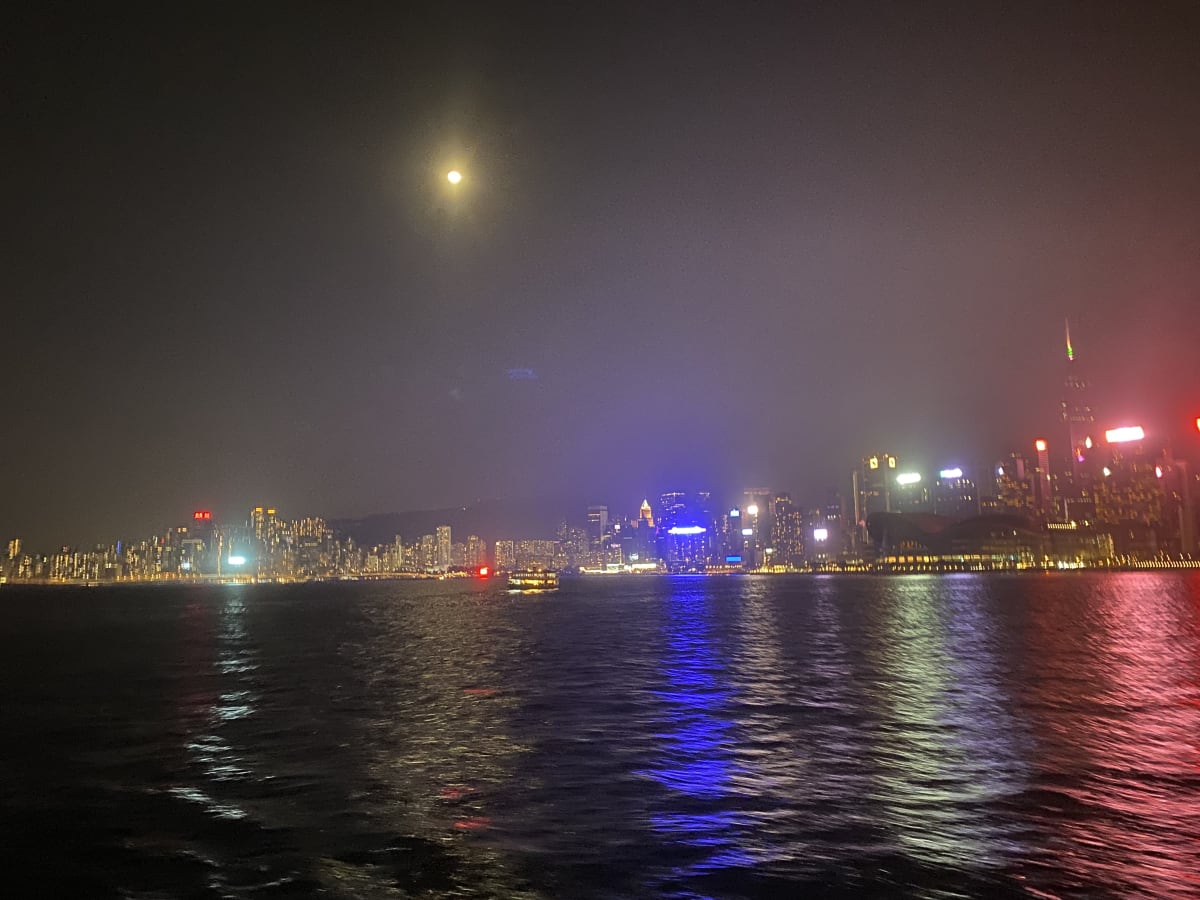
Generally, though, audiences were a lot smaller than at a New Zealand literary event. I attended 10 events and most attracted less than 50 people. There was something boutique about the Hong Kong international writers festival – rich elites, just not that many people, held in a range of really nice venues (the Asia Society complex, the upstairs Fringe Club on Lower Albert Rd, and the private clubrooms of Soho House on Des Voeux Rd). It's run as a non-profit, without government assistance, and with the goodwill of a volunteer corps who were unfailingly helpful with my various pesterings for assistance; a new team were tasked with directing the festival, moribund since 2019, and it sometimes felt they were making it up as they went along. There were "technical difficulties" such as hand-held microphones that didn’t work, and one event was delayed for 20 minutes while they scurried hither and yon looking for the amplifying system.
But the festival itself has had a distinguished history. It was first staged in 2001, and can be seen as the inspiration behind other similar events throughout Asia; the Shanghai International Literary Festival and the Ubud Writers and Readers Festival in Bali began in 2003, the Galle Literary Festival in Sri Lanka debuted in 2005, and William Dalrymple set up the most famous literary event in all of Asia, the Jaipur Literary Festival, in 2006. Hong Kong got there first.
Its 2023 iteration, too, showed a lot of initiative. I interviewed Maureen Tai, the very smart, very astute operations manager of the festival, and she said, "The purpose of a festival is to create spaces and pockets of hope…to exchange ideas and to be inspired." The loudest exchange of ideas I witnessed was at a boisterous session titled, "Lessons of Covid-19." Hong Kong was one of the world's last countries to relax mask-wearing mandates, and open its borders; the resentment poured out of one guy in the audience. He didn't wait for the Q & A part of the event, fronted by three health officials. He interrupted them, and claimed that the average age of Covid-related deaths in Hong Kong was 84: "So why are we worried about it? Why panic? Why create fear? Who cares?" One of the officials said, "My mother is 84. So I care." The man jeered, "We've all got to die!"
It was a lively, wide-ranging programme, with an emphasis on walking tours with authors, something a New Zealand literary festival could think of retooling for local conditions - I'm thinking of a ticket to visit the Miranda Shorebird Centre under the expert tutelage of shorebird author Keith Woodley, say, or an architectural walk and talk conducted by urbanists Patrick Reynolds and John Walsh (authors of walking guides to Auckland, Wellington and Christchurch). Anyway, so it was that I ended up blundering about in thick jungle at night looking for poisonous snakes.
Adam Francis is the American-born author of A Field Guide to the Snakes of Hong Kong. He wore a white safari suit and picked me up from the central pier in his white Tesla, the door opening up and out like some weird white wing. He said: "If you throw a rock in Hong Kong, chances are it will hit someone in financial services." He works in financial services but his one and only consuming subject on the long drive through the hills about half-way to China, parking at Ng Tung Chai village on the edge of Tai Mo Shan country park, was snakes. His walk was limited to eight people; the actual turn-out was very limited indeed, to four people.
As for the number of snakes found on the walk, he made an introductory speech: "I need to manage expectations. We've got a big Moon, and cold, dry conditions. But anything is possible!" Nothing was also possible, which is to say the number of snakes found on the walk was zero. No snakes; snakes, nil; and yet it had been an exhilarating three hours in pitch darkness, in jungle like some deranged version of an Auckland back yard, full of taro and banana plants and creepers. Village dogs tied up against tin shacks woofed when we set off. But then all was complete silence. What loveliness. For all its subways, its malls, its financial services, Hong Kong is a hiker's paradise, a tropical wilderness writhing with over 40 species of, apparently, snakes.
The other three who signed up were familiar with the area. Joe, a Scots expat, talked engagingly about walking through the jungle in a typhoon, with a waterfall turned into a raging torrent. He'd seen his first Hong Kong snake up here: a red-necked keelback, swallowing a toad for its poison. Adam talked of his various encounters with the Chinese cobra ("There's something different behind their eyes, an intelligence; they're problem solvers"), and when his torchlight directed us to peer at a cluster of eggs inside a drainage hole in a retaining wall, he confidently asserted the snake most likely to eat them would be the Taiwanese kukri ("Their teeth give a very deep and clean slice like a razor blade, and their saliva makes the cut bleed profusely").
The stories were exciting, and so were his warnings: "Make sure when you reach out for a branch that it's a branch and not a snake." In the absence of snakes, there was very little excitement but considerable beauty in the creatures he did find – a warty newt, a cocoon of the Atlas moth ("They will come out of this one day as the biggest moth in the world," he said, sort of excitedly), two geckos, a few freshwater shrimp, and three lantern bugs.
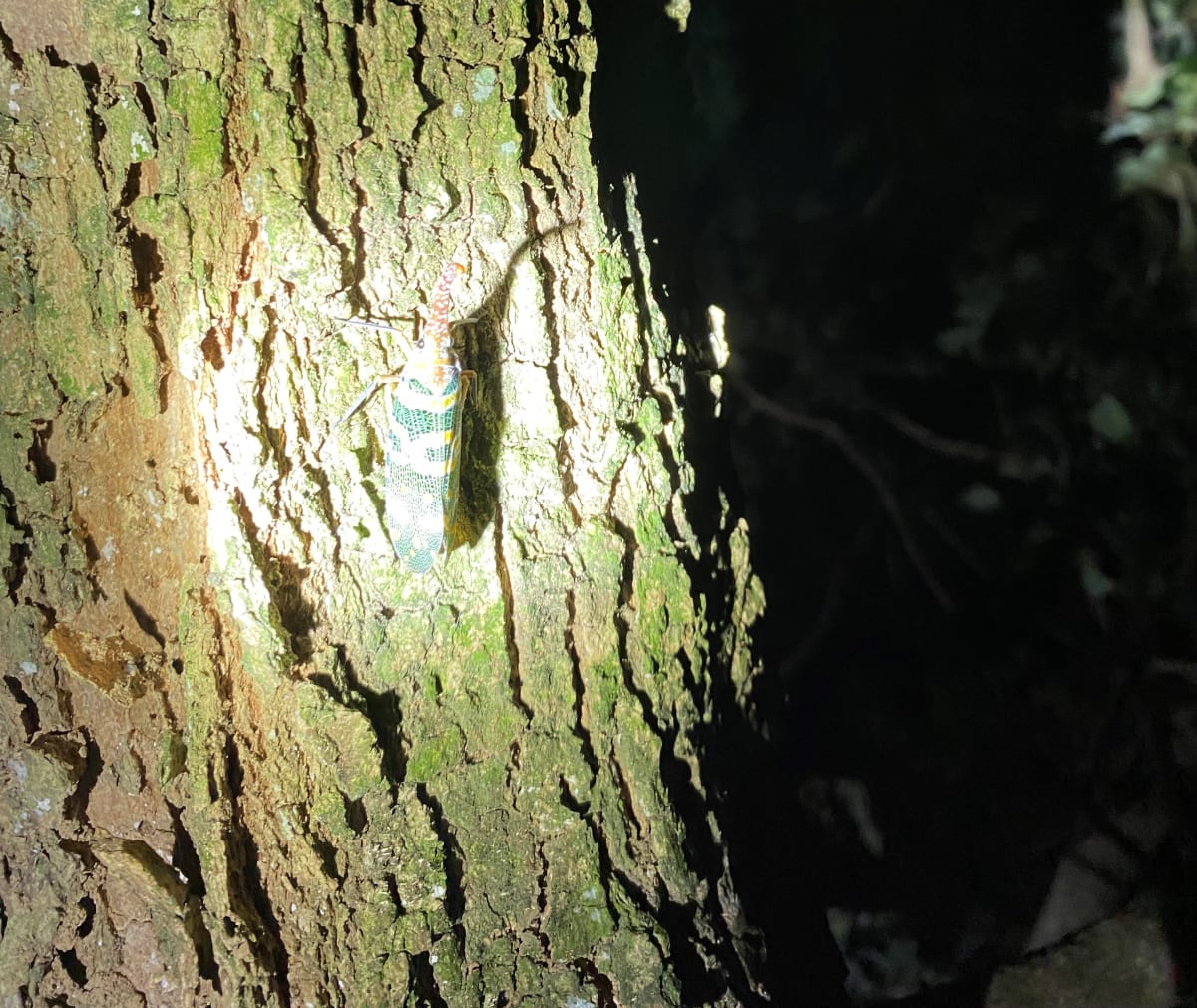
The outline of the treetops in the full Moon, a Taoist temple in the middle of it all, urns behind the barred windows of concrete graves on either side of the track…They do things differently in Hong Kong. They do literary festivals differently, and – in the sense of something out of the ordinary, something original - better.
*
Two days after my blunder in the jungle I walked just about as far and as long in the streets of Hong Kong. My second international literary tour was led by ArChan Chan, formerly a head chef in Singapore and Melbourne, now at Ho Lee Fook in Hong Kong and the author of Hong Kong Local: Cult recipes from the streets that make the city. It's a very bright and appealing book, with va-va voomish 60s pop art block colour layouts. A ticket to her walking tour included a copy of the book. I tagged along with a friendly bunch of expats from Austria, Poland, Scotland, and India; adopted Hong Kongers, looking for inspiration in their tiny kitchens in their tiny apartments costing an average of $US3000 per month for an average of 400 square feet. "Half your salary," said the Indian expat, but he wasn't complaining too much. He had come to Hong Kong for the good life and he was finding it on his salary with a flat tax rate of 10%.
It was a pleasant tour. We looked at a wet market and a dried seafood market (fish bladders priced at $HK100,000, or roughly $NZ20,000) and scoffed an amazing lunch (also part of the ticket price of $HK888, or roughly $NZ180) at a modest little joint in a district where the Austrian had lived for three years but had never even noticed. No one could blame him. Three Minus One was cooled by electric fans in the ceiling; its aircon unit built in the wall was choked with oil and soot, and had long since been derelict. Beyond the narrow kitchen was an open window framing a banyan tree. No one spoke English and ArChan translated the dishes: prawn dim sum, fish wrapped in lotus leaf, steaming hot Ma Lai Go (sponge cake)….What a feast. Maybe a New Zealand literary festival could follow Hong Kong's lead, and persuade Hiakai: Modern Māori Cuisine author Monique Fiso or our best food writer, Jesse Mulligan, to conduct an Aotearoa experience.
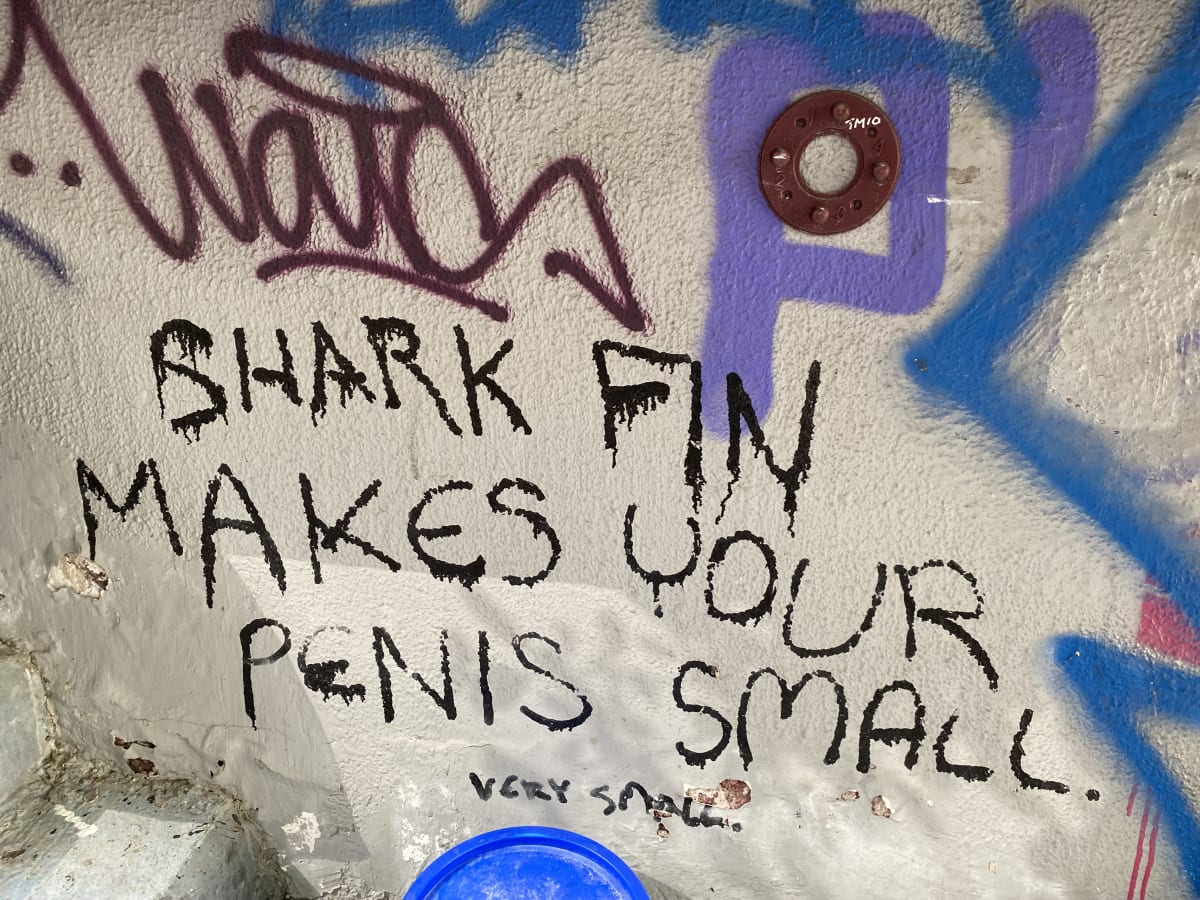
I saw an awful lot of exceedingly content shop cats on ArChan's tour, fat tabby after fat tabby lounging on counters, so I decided I didn't really need a third walking tour at the festival – a photographer on his book Shop Cats of Hong Kong. Yet another tour offered a look around a kind of floating island in Kowloon, Chungking Mansions, a 17-storey building filled with asylum seekers and travellers from Africa and South East Asia. I visited on one of my last days in Hong Kong and it was like a culture shock: I didn't see a single Chinese face. There were cheap electronic goods and lots of curry joints on the first two floors; above that were 2000 little guest rooms. I inspected a room at random. It was very little indeed, just enough space for a mattress on top of an iron bed. The whole place was bustling, strange, inexplicable.
Gordon Matthews, an American-born anthropologist living in Hong Kong, wrote a best-selling book that explained Chungking Mansions: its fetching title is Ghetto at the Centre of the World. I attended a talk he gave at the festival. He was a chatty little fellow who rather seemed to love the sound of his own voice. It was at least preferable to the loud hum of an aircon unit which a festival volunteer finally located and turned off. For a career anthropologist, Matthews was given to sweeping statements. He claimed, "Hong Kongers are the only people in the world who do not understand what it means to belong to a country." This was dubious. He sometimes spoke like a man determined to provide good copy; hard to know how to assess the credibility of another bold assertion: "The old racism in Hong Kong was against Africans. The new racism is against mainland Chinese."
There was quite a long silence after that remark. Matthews had shut up, for once; no one leaped in to add anything to the subject. Certain underlying tensions…It reminded me of another fraught little moment which I created by asking a question at an event featuring author Dung Kai-cheung.
"The most revered and well-known novelist in Hong Kong," as Dung was introduced, by Maureen Tai. About 30 people came to see Hong Kong's most revered and well-known novelist. He spoke about his novel first published in 1999 and translated into English in 2022 with the brilliant title A Catalog of Such Stuff as Dreams Are Made Of. They were 99 sketches, he said, of 99 consumer goods. "I wanted to invent the way people made personal use of these things," he said, "sometimes abnormally." He had a gentle wit and spoke so fascinatingly about the novel that I desperately wanted to buy a copy after his talk but there weren't any for sale. "Available in Book Depository," apologised Maureen.
Dung was asked after his talk about his publishing career. He mentioned he'd had a book published in China, in 2011. "That was when the atmosphere was more open," he said. "But then everything stopped. You can’t get published in China anymore. And maybe that's not a bad idea."
I asked, "What do you mean by that?"
Someone laughed; someone else coughed; there was a scrape of a chair, and then silence. It was an awkward question and it put the author on the spot. But after he measured the best thing to say, he answered simply and openly. "To write about what it's really like here in Hong Kong," he said, "would be impossible."
Steve Braunias travelled to Hong Kong with assistance from the Asia New Zealand Foundation. This is the first of his week-long series on the Hong Kong international writers festival; tomorrow, how the festival navigated the subject of China, and the national security laws.







